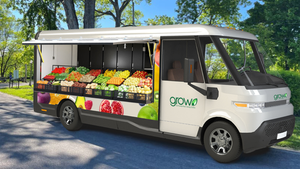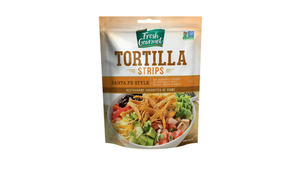MANUFACTURER SUPPORT CALLED KEY TO HISPANIC MARKET
PALM SPRINGS, Calif. -- Brand manufacturers should increase their marketing focus on retailers in Hispanic neighborhoods, a food broker said at the Mexican American Grocers Association's 12th annual marketing, sales and promotion conference here. "Ethnic marketing is not all about selling jalapenos and salsa to Hispanics but about selling all products," said Manny Cuevas, vice president and division
April 15, 1996
ELLIOT ZWIEBACH
PALM SPRINGS, Calif. -- Brand manufacturers should increase their marketing focus on retailers in Hispanic neighborhoods, a food broker said at the Mexican American Grocers Association's 12th annual marketing, sales and promotion conference here. "Ethnic marketing is not all about selling jalapenos and salsa to Hispanics but about selling all products," said Manny Cuevas, vice president and division manager of diversified sales for Billings-Horn Co., Cerritos, Calif., who spoke in a panel on distribution networks. Because many major manufacturers are based outside cities with heavy Hispanic populations, "they don't always understand the Hispanic marketplace," Cuevas said, "and it's our job to work with them to be sure they support retail programs for Hispanics and that they bring additional dollars to the marketplace." Too often, however, manufacturers don't give independent retailers in Hispanic areas the same opportunities they give retailers in other areas, Cuevas noted. "But if a manufacturer wants to position himself for the future by developing brand equity, then it's important that he develop programs for all retailers," he said. Asked about the value of in-store demonstrations in Hispanic-area supermarkets, Cuevas and other panelists said demos are very useful. "Although they are not cost-effective, demos are necessary, and we recommend to manufacturers that they invest in demos, including in-store couponing," Cuevas said. According to panelist Ted Gardner, general manager of Grocers Specialty Co., a subsidiary of Certified Grocers of California, Los Angeles, "Demos can be cost-effective if manufacturers join together to tie in several products and split the costs." Panelist Art Klawans, managing director of National Food Distribution Associates, Chicago, said demos are "a way to get people to try something new, different or unique, and it's a good idea to tie them in with a coupon." Speaking for the audience, John Mas, category manager at Vons Cos., Arcadia, Calif., suggested that manufacturers look at in-store demos as an advertising expense rather than as a promotional expense. "Demos create excitement, and they are good vehicles for launching something new and different. But too often manufacturers think of them in terms of specific payouts -- selling a certain number of cases for the demo to be profitable. But you can't look at it like that," Mas said. "A manufacturer running a TV ad doesn't say he has to sell a certain number of cases for the ad to be effective. He simply hopes the ad will create excitement," he explained.
"So we look at demos as advertising vehicles -- not as a method to sell a certain number of cases -- because that's not their only purpose. Demos should be looked at as part of a company's advertising expense, like billboards or radio, not as a promotional expense."
About the Author
You May Also Like






